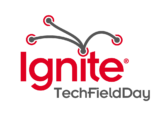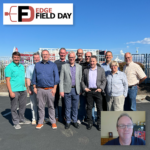|
|
This video is part of the appearance, “Ignite Talks at Edge Field Day 3“. It was recorded as part of Edge Field Day 3 at 9:00-10:00 on September 19, 2024.
Watch on YouTube
Watch on Vimeo
Guy Currier from The Futurum Group discusses the AI development lifecycle, emphasizing that AI is not an application in itself but rather a service integrated into applications. He begins by clarifying a common misconception: AI is often thought of as a standalone application, but in reality, it is a service that enhances applications by providing intelligent responses or actions. For example, a chat application may use AI to generate responses, but the AI is just one component of the broader application. This distinction is crucial for organizations looking to adopt AI, as they need to understand that AI development involves creating services that can be integrated into various applications, rather than building a single AI “application.”
Currier outlines three distinct life cycles in AI development. The first involves foundational models, such as GPT or DALL-E, which are typically developed by large organizations or cloud providers. While companies can create their own foundational models, it is often more practical to adopt existing models and tune them using proprietary data. This tuning process is where organizations begin to develop their own intellectual property, as they adapt the foundational models to their specific needs. For instance, companies like Thomson Reuters have incorporated AI into their legal services, using proprietary legal data to enhance the AI’s capabilities. This tuning process follows a development cycle similar to traditional software development, involving infrastructure, tooling, and iterative testing.
The third life cycle Currier discusses is Retrieval Augmented Generation (RAG), which adds contextual data to user prompts. RAG involves searching for relevant information, either from internal or external sources, to enhance the AI’s responses. This process requires its own development and monitoring, as the quality and relevance of the contextual data are critical to the AI’s performance. Currier emphasizes that these three life cycles—foundational model development, model tuning, and RAG—each have distinct infrastructure and development strategies. Organizations must address all three to create AI services that are responsive, contextual, and tailored to specific business scenarios.
Personnel: Guy Currier









